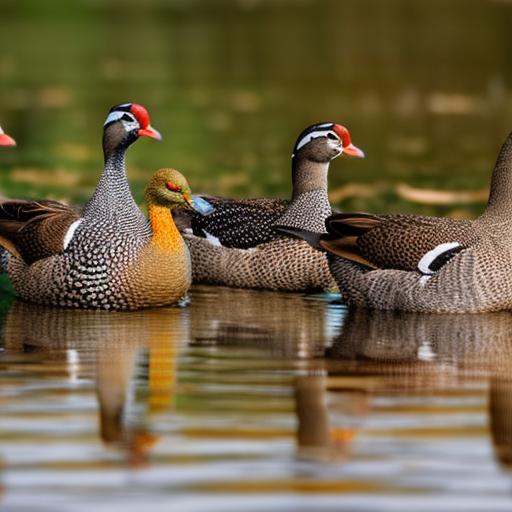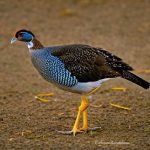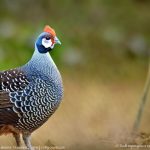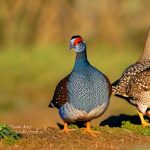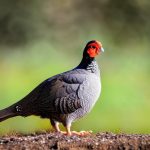Guinea fowl and ducks are both popular poultry choices for small-scale farmers and homesteaders. Guinea fowl, also known as guineas, are native to Africa and are known for their distinctive appearance and loud calls. They are often kept for their pest control abilities, as they are excellent at foraging for insects and other small pests. Ducks, on the other hand, are known for their adaptability and ability to thrive in a variety of climates. They are also valued for their egg production and can be raised for meat as well. Both guinea fowl and ducks are social birds that thrive in flocks, making them a popular choice for those looking to add diversity to their poultry collection.
Guinea fowl and ducks have some similarities in terms of their care requirements, but there are also some key differences to consider when raising them together. Understanding the compatibility, housing needs, feeding requirements, health considerations, and behavioral interactions between guinea fowl and ducks is essential for successful cohabitation. In this article, we will explore these aspects in detail to provide a comprehensive guide for those interested in raising guinea fowl and ducks together.
Key Takeaways
- Guinea fowl and ducks are both popular poultry birds known for their pest control abilities and flavorful meat.
- Guinea fowl and ducks can be compatible when raised together, but careful introduction and monitoring is necessary to prevent aggression.
- Guinea fowl and ducks require adequate housing and space to roam, with separate areas for nesting and roosting.
- Both guinea fowl and ducks have specific dietary needs and require access to fresh water at all times.
- Regular health checks and preventative measures are essential for keeping guinea fowl and ducks healthy, including protection from common poultry diseases.
Compatibility of Guinea Fowl and Ducks
Guinea fowl and ducks can coexist peacefully in the same environment, but it is important to consider their individual needs and behaviors when housing them together. Both species are social animals that thrive in flocks, so they can benefit from each other’s company. However, guinea fowl are known for their loud calls and can be more aggressive than ducks, especially during the breeding season. It is important to provide enough space and resources to prevent any potential conflicts between the two species.
In terms of compatibility, guinea fowl and ducks can actually complement each other quite well. Guinea fowl are excellent foragers and can help control insect populations in the area, which can benefit the ducks by reducing the presence of pests in their environment. Ducks, on the other hand, are known for their calm and docile nature, which can help balance out the more assertive behavior of guinea fowl. Overall, with proper management and attention to their individual needs, guinea fowl and ducks can coexist harmoniously.
Housing and Space Requirements
When housing guinea fowl and ducks together, it is important to provide adequate space and shelter to accommodate the needs of both species. Guinea fowl are known for their roosting behavior and prefer to perch off the ground at night, so providing elevated roosting areas in the coop is essential. Ducks, on the other hand, are more comfortable on the ground and will appreciate access to water for swimming and bathing. Therefore, a well-designed coop with separate areas for roosting and water access is ideal for housing guinea fowl and ducks together.
In terms of space requirements, both guinea fowl and ducks need ample room to move around and forage. A general rule of thumb is to provide at least 3-4 square feet of space per bird in the coop, with additional space in the outdoor run or pasture area. It is important to ensure that the coop is predator-proof to protect both guinea fowl and ducks from potential threats. Additionally, providing adequate ventilation and natural light in the coop is essential for the overall health and well-being of both species.
Feeding and Nutrition
Guinea fowl and ducks have different dietary needs, so it is important to provide a balanced diet that meets the nutritional requirements of both species. Guinea fowl are primarily insectivores and enjoy foraging for insects, seeds, and plants. They also require a higher protein content in their diet compared to ducks, especially during the breeding season. On the other hand, ducks are omnivores and will consume a variety of foods including insects, aquatic plants, grains, and commercial poultry feed.
When feeding guinea fowl and ducks together, it is important to provide a high-quality poultry feed that meets the nutritional needs of both species. Additionally, offering supplemental treats such as mealworms, fruits, and vegetables can help provide enrichment and variety in their diet. It is important to monitor their food intake to ensure that both guinea fowl and ducks are receiving adequate nutrition without overeating. Providing access to clean water at all times is also essential for both species.
Health Considerations
Guinea fowl and ducks are generally hardy birds, but they are still susceptible to certain health issues that require attention and care. Both species are prone to respiratory infections, parasites, and injuries from predators or aggressive behavior within the flock. It is important to monitor the overall health of guinea fowl and ducks regularly and provide appropriate veterinary care when needed.
In terms of disease management, it is important to practice good biosecurity measures to prevent the spread of diseases between guinea fowl and ducks. This includes keeping their living quarters clean and dry, providing access to clean water, and quarantining new birds before introducing them to the existing flock. Additionally, providing a balanced diet, regular exercise, and access to fresh air and sunlight can help boost the immune system of both guinea fowl and ducks.
Behavioral Interactions
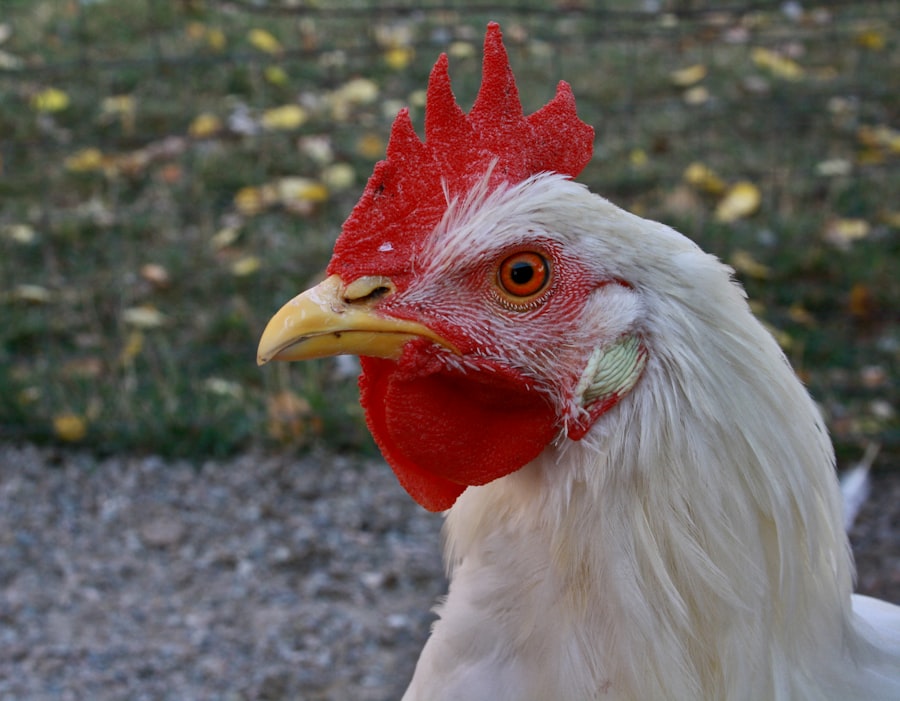
Guinea fowl and ducks have different social behaviors that can impact their interactions when housed together. Guinea fowl are known for their assertive nature, especially during the breeding season when males can become more aggressive towards other birds. Ducks, on the other hand, are generally more docile and may be more susceptible to aggressive behavior from guinea fowl. It is important to monitor their interactions closely to prevent any potential conflicts within the flock.
In terms of social dynamics, guinea fowl and ducks can actually benefit from each other’s company. Guinea fowl are known for their alertness and can help alert ducks to potential threats or predators in the area. Ducks, on the other hand, can provide a calming influence on the more assertive behavior of guinea fowl. Providing enough space and resources within the flock can help minimize any potential conflicts between guinea fowl and ducks.
Conclusion and Recommendations
In conclusion, raising guinea fowl and ducks together can be a rewarding experience for small-scale farmers and homesteaders. Understanding their compatibility, housing needs, feeding requirements, health considerations, and behavioral interactions is essential for successful cohabitation. With proper management and attention to their individual needs, guinea fowl and ducks can coexist harmoniously while providing pest control benefits and egg production.
For those considering raising guinea fowl and ducks together, it is important to provide adequate space and shelter that meets the needs of both species. Additionally, providing a balanced diet that meets their nutritional requirements, monitoring their overall health regularly, and managing their social interactions within the flock are essential for successful cohabitation. With proper care and attention, guinea fowl and ducks can thrive together while providing a diverse and sustainable poultry operation for small-scale farmers and homesteaders alike.
If you’re considering keeping guinea fowl with ducks, you may also be interested in learning about the best location for your chicken coop. Poultry Wizard offers valuable insights on where to put your chicken coop, ensuring the comfort and safety of your feathered friends. Check out their article on Where to Put Chicken Coop for expert advice on creating an ideal environment for your poultry.
FAQs
Can guinea fowl and ducks be kept together?
Yes, guinea fowl and ducks can be kept together in the same enclosure. They generally get along well and can even help to protect each other from predators.
What are the benefits of keeping guinea fowl and ducks together?
Keeping guinea fowl and ducks together can provide mutual protection from predators, as guinea fowl are known for their alertness and loud calls, while ducks are good at foraging for insects and keeping the area clean.
Are there any potential issues with keeping guinea fowl and ducks together?
While guinea fowl and ducks can generally coexist peacefully, there may be some territorial disputes or aggression, especially during mating season. It’s important to provide enough space and resources for both species to minimize any potential conflicts.
What should be considered when housing guinea fowl and ducks together?
When housing guinea fowl and ducks together, it’s important to provide a secure enclosure with plenty of space for both species to roam and forage. Additionally, providing separate nesting areas for each species can help minimize any potential conflicts during breeding season.
What do guinea fowl and ducks eat?
Guinea fowl and ducks are omnivorous and have similar dietary needs. They both eat a diet that consists of grains, seeds, insects, and vegetation. It’s important to provide a balanced diet for both species to ensure their health and well-being.
Meet Walter, the feathered-friend fanatic of Florida! Nestled in the sunshine state, Walter struts through life with his feathered companions, clucking his way to happiness. With a coop that’s fancier than a five-star hotel, he’s the Don Juan of the chicken world. When he’s not teaching his hens to do the cha-cha, you’ll find him in a heated debate with his prized rooster, Sir Clucks-a-Lot. Walter’s poultry passion is no yolk; he’s the sunny-side-up guy you never knew you needed in your flock of friends!

